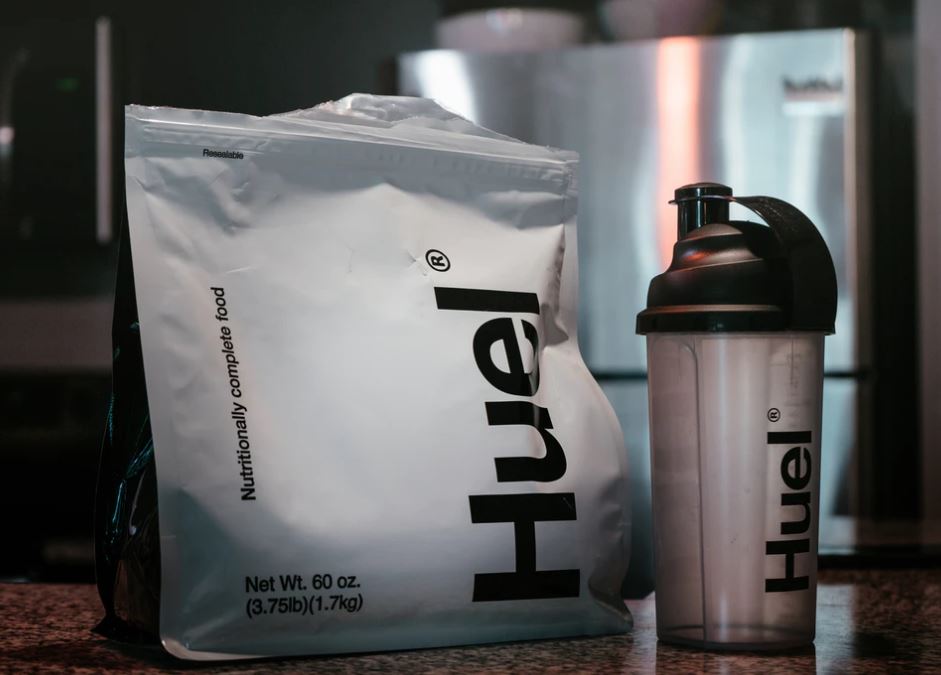Deciding on the best way to lose weight before embarking on a programme can be daunting. There’s a ridiculous plethora of choices these days, so which approach do you head for?
Do you join a slimming group? Buy the latest diet book? Or follow a plan you read about in a newspaper or magazine? At WeightWise we aim to cut through all this hype by offering unbiased and independent advice from specialists in their field.
But… there isn’t a single weight-loss approach which will suit everyone, and so sometimes it can pay to try different strategies to make a success of it and find out ultimately what works for you.
In this article we outline a range of killer tips showing the best way to lose weight which we hope will inspire you and offer support when the going gets tough.
Finding the Right Weight Loss Approach For You
Is Your Weight Loss Programme A Sensible Responsible One?
Whether you are going it alone, or seeking out a group of like-minded individuals to share your weight loss journey with, you need to make sure that your weight loss programme is responsible. A responsible plan will include the following elements:
- It will help you assess your weight and decide on a realistic, healthy target weight;
- Recommend a maximum weekly weight loss of 0.5-1kg (1-2lbs);
- Focus on long-term, lifestyle changes rather than a short-term, quick-fix approach;
- Be based on scientifically-sound advice;
- Use a balanced, healthy eating approach;
- Recommend regular physical activity and offer practical, safe advice about being more active;
- Include some behaviour change techniques, such as keeping a diary; how to cope with ‘lapses’ and ‘high-risk’ situations;
- Recommend some form of on-going support.
See if your Doctor’s Surgery Can Offer Help
People often overlook useful local support groups when they recognise that they need to lose weight. Your local doctor’s surgery is one of these. What’s on offer in terms of weight management support will vary so it makes sense to speak to your doctor or practice nurse about what is available for you. This may include:
- A practice nurse who will help with lifestyle change and offer regular support
- A local weight management group, either within the practice run by health professionals, or other local groups
- A dietitian, who can offer more individualised, specialist advice and support with managing your weight
- An exercise prescription scheme at a local leisure centre in addition to dietary support
If you’re currently not registered with a practice and want to find where your nearest one is, look on the NHS Direct website.

Try a Commercial Slimming Organization
Many people find belonging to a group very supportive, and are often very successful at achieving their goals with that reassurance and backup (and a bit of peer pressure thrown in for good measure!).
A slimming organization can offer:
- Structure
- Education
- Support
- Skills and strategies
All cost money to attend weekly, though some GPs offer sessions with commercial slimming organisations on ‘prescription’.
The three most popular ones in the UK are: Weight Watchers, Rosemary Conley Diet and Fitness Clubs, and Slimming World.
Weight Watchers
Key Features which differentiate it:
- The weight loss programme is based on a POINTS® system where individuals are given a number of POINTS values that are personal to them, to use throughout the day. The programme is flexible – it’s up to you how you spend your POINTS values.
- POINTS values are based on the calories & saturated fat within a portion of food or drink. It’s a simple system that helps you to create a calorie deficit for healthy and sustainable weight loss and to follow a healthy diet that is low in saturated fat.
- Learning and building healthy habits is an integral part of the programme with skills and strategies to help you change your everyday habits and build activity into your lifestyle, so you can lose weight and keep it off for good.
- Small, achievable goals are encouraged for example a first weight loss goal of 5% of your initial weight.
- Meetings are weekly and weigh-ins are done in complete privacy. Confidentiality is guaranteed with no naming and shaming. There is a weekly healthy weight loss curriculum so you can learn about: healthy nutrition, activity and healthy habits in a supportive environment.
- All group leaders have successfully lost weight with Weight Watchers themselves, so understand the journey of weight loss.
- The Weight Watchers POINTS system is also available to follow completely online at www.weightwatchers.co.uk.
Rosemary Conley Diet and Fitness Clubs
Key Features:
- Members follow the F.A.B diet and possible a booster diet called solo slim, combined with an optional exercise programme adapted for individual fitness levels, for an inclusive price.
- Exercise class options, depending on the instructor.
Weekly classes typically involve a private weigh in and one-to-one consultation, followed by a 5-minute motivational talk and a 45-minute exercise session to music with a qualified Instructor. - Promote a healthy rate of weight loss and set realistic weight loss targets.
- In addition to or as an alternative to the classes, there are the Rosemary Conley Diet and Fitness videos, books and magazine which people can follow at home, and an on-line version of the slimming club.
- For more information and for your nearest class, please visit: www.rosemaryconley.com or call 01509 620222.
Slimming World
Features:
- Slimming World integrates three key principles to help slimmers adopt a healthier lifestyle:
- A warm, empowering group environment which supports members and promotes behaviour change around eating and activity habits.
- A satisfying eating plan to promote healthy eating patterns for life.
- Activity management to help members gradually increase activity levels.
- The healthy eating plan is called Food Optimising and is based on the principles of energy density and satiety. There are a number of choices available to members so there is a choice to suit everyone.
- Fruit and vegetables can be eaten freely on all choices, so the 5 a day recommendation is easy to achieve with this plan
- Realistic weight loss targets are encouraged (10% weight loss)
- Slimming World accepts pregnant and breastfeeding women with the support of their midwife
- It also supports 11-15 year olds with a tailored programme called Free2Go (they attend free of charge when with a parent or guardian)
- For more information, visit: www.slimming-world.com/health

Give ‘Liquid Meal Replacements’ a Go
Liquid Meal Replacements (LMRs) can be an effective alternative to weight control for some people. They are designed to replace one or more meals a day, providing nutrients within a known calorie limit. UK examples include: the Slim Fast Plan, Boots Shapers and Herbalife,
Typical features of Liquid Meal Replacements
- This approach usually provides around 1200-1600 calories per day.
Range includes shakes, bars and soups. - Users are advised to replace 1-2 meals (often breakfast and lunch) with a meal replacement and include a healthy meal in the evening (or at lunchtime).
- Additional fresh fruit and a modest number of healthy snacks are allowed, as well as drinking at least 6-8 glasses of water or low-calorie drinks.
- Meal replacement products are usually fortified with extra vitamins and minerals to help ensure they provide the recommended amount of nutrients for good health.
- Many of these plans provide additional online or written support.
LMRs definitely tend to suit those people who:
- Like a simple approach to weight loss without having to think about planning and preparing individual meals.
- Like to have the reassurance of calorie and portion control.
- Are able to be self motivated.
BUT… some people may find they get bored of the LMRs quite quickly as they can be too ‘samey’. You also need to take care when moving back to a normal diet after your LMR diet because it can be quite easy to slip back into bad habits – continuing to choose foods wisely will help you to avoid regaining the pounds.
Very Low Calorie Diets (VLCDs)
VLCDs are the most restrictive form of dieting whereby the total calorie intake is severely reduced (below 800 calories), and for which medical supervision is recommended. VLCDs are scientifically proven to achieve effective weight loss and to be therapeutically effective in treating sleep apnoea and osteoarthritis.
However, VLCDs should only be a last option and should only be undertaken with the help of a health professional.
Typical features of VLCDs:
- These are nutritionally balanced formula foods designed to replace all meals.
- As a ‘sole source’ of nutrition, they provide a total daily calorie intake of between 400-799 calories
- Organisations such as Cambridge Weight Plan offer a range of weight loss and maintenance programmes from 415 calories increasing to 1500 calories per day
- At least 2¼ litres of water (4 pints) must be taken in addition to the formula foods to help maintain hydration
- The product range consists of drinks, soups, porridge and bars
- The programmes are provided with written information which gives detailed instructions about which foods to include on different plan options and recipe ideas
- Customers are offered support from specially-trained consultants throughout all stages of weight care and weight maintenance
Important considerations
- Ideally this approach (where formula foods are the ‘sole source’ of nutrition) should be followed under medical and/or dietetic supervision
- Side effects such as headache, nausea, constipation, diarrhoea and dizziness can occur, usually as a result of inadequate water intake
- May be helpful in very overweight individuals where other approaches have not worked, and when immediate weight loss is needed for medical reasons i.e. before an operation
- To follow the VLCD approach, individuals need to be highly motivated
- After the initial weight loss, support and advice are important in order to avoid rapid weight regain
- To ensure nutritional adequacy, people using this approach should only use branded products, rather than their own ‘home made’ drinks
The ‘Quick Fix Diet’ – But Be Careful!
Here we’ve included two of the more popular diets that are often talked about: low carbohydrate and food combining diets. There is no magic formula in these approaches that help you lose weight – it comes down to restricting calories. There are just different ways of doing it.
How to spot a ‘quick-fix’ diet. We recommend you avoid diets that:
- Recommend magical fat-burning effects of foods (e.g. grapefruit)
- Promotes the avoidance of a whole food group (and suggest large doses of vitamin and mineral supplements instead)
- Promote eating mainly one type of food (e.g. cabbage soup)
- Don’t address barriers to changing eating habits
- Don’t recommend regular physical activity
- Don’t warn people with a medical condition to seek medical advice
- Suggest rapid weight loss (over 1kg (2lbs) per week)
Low carbohydrate Diets – e.g. The Atkins Diet
Typical features:
- The aim is to severely restrict carbohydrate-rich foods (bread, pasta, rice, potatoes, cereals)
- Most fruits are restricted and even some vegetables
- Chocolate, crisps, sugar and most alcoholic drinks are also limited
- Meals are based on large portions of meat, fish, poultry, dairy products
- Encouraged to use liberal amounts of butter, oil, fatty meats and cream
- During weight maintenance phases, the carbohydrate allowance is a little more relaxed but remains limited
Concerns about the Atkins Diet
There is concern about the long term effect of following this type of diet. More research is needed, but on current evidence, the British Dietetic Association does not recommend using this approach for managing weight.
Although some people do lose weight in the short term, without adverse effects, this rapid weight loss is initially due to water and glycogen (carbohydrate is stored as glycogen in the muscles). Often, initial weight loss is regained.
Side effects of this diet can include: weakness, nausea, dehydration and bad breath. These side effects could be serious for people with diabetes.
The American Heart Association (AHA) has highlighted concerns about potential heart, kidney, bone and liver problems while following this type of diet.
Food combining
Typical features:
- Protein-rich foods such as meat, fish, eggs and dairy products should not be eaten at the same meal as carbohydrate-rich foods (bread, pasta, potatoes, cereals and sugary foods)
- The theory behind this is that combining foods in this way interferes with ‘proper’ digestion and leads to weight gain
- Most fruits, vegetables and salad are not restricted
- Processed foods are discouraged
Concerns about Food Combining
- It’s not true to say that eating combinations of foods interferes with ‘proper’ digestion- most foods contain a mixture of nutrients- and there is no evidence to suggest that it has any influence on weight loss
- Choosing foods when eating out might be more difficult
- Restricting processed foods means preparing meals from scratch, which some people might find time-consuming
- These diets offer little in the way of behaviour change strategies or recommendations for becoming more active
Increase Your Calorie Burn
If cutting calories from your diet is proving too difficult then the other option is to simply increase your activity to burn more of the calories which you’re consuming. It’s worth noting however that you have to do alot of exercise to simply burn one mars bar – around 40 minutes of walking, or 20 minutes of running. Often it is best to try and combine a reduction in calorie intake as well as burning more calories – diet + exercise = success.
Joining a gym is always an option, but there is a multitude of home based equipment which can help increase your activity – you can even watch TV while doing it. Think about the following pieces of home equipment to increase calorie burn:
- spin cycle
- rowing machine
- vibration plate
- treadmill
Online resources are plentiful now too – take Joe Wicks as an example – hundreds of online exercise classes of about 15 minutes in length. Easy to follow and great to get your blood pumping in earnest!
Alternatively, lifting weights can be an excellent way of using up calories. Buy some dumbbells and potentially a bench, and you can quickly start to make progress with some very simple exercises. Energy = force x distance, and so you can either lift a heavy weight a short distance, or a light weight a long distance to use up some spare calories.
Exercises with weights can be performed by both men and women, and contrary to popular myths, you achieve a toned look very easily and don’t have to bulk up like a bodybuilder. Lots of reps (lifts or presses) with lights weights can do wonders for your appearance if you do a little bit every day.
Best Fat Burning Pills for Obliterating That BellyA Last Resort? The Medical Route
We are not fans of elective procedures for weight loss at all, and are loath to even mention it here. However, it is undeniable that there are medical techniques which can facilitate losing weight and they are getting more popular and available.
Drug Therapy For Weight Loss
There is one main ‘anti-obesity’ licensed drug available on prescription: Xenical or Orlistat. It has a role to play in the management of obesity, but it certainly does not replace making lifestyle changes for long term healthy weight loss.
Xenical can help some people with serious weight problems (BMI>30 kg/m2) achieve beneficial amounts of weight.
Xenical works in the stomach and intestine to prevent the absorption of about 30% (one third) of the fat eaten at a meal. This means the fat passes through your bowel undigested. As a result, Xenical must be taken with a low fat diet otherwise you will suffer unpleasant bowel effects.
Xenical can be prescribed by a GP for certain groups of people. It is also available over the counter with another name – Alli. It is important to check with your pharmacist that this is suitable for you before taking it. Alli only works safely and effectively if taken as part of a healthy calorie-controlled, low fat eating plan to help weight loss and to avoid any side effects of Alli.
Comments
- These drugs don’t suit everyone, and there are strict criteria for who they can be prescribed for.
- When prescribed Xenical, you are provided with an excellent support programme that guide towards appropriate changes to diet and activity. Programmes are developed by health professionals and cover all aspects of lifestyle change.
- If you are interested to find out more about these anti-obesity drugs, talk to your doctor or pharmacist.
- A variety of weight loss drugs are available over the internet and at private clinics. At best, they contain no active ingredients that will reduce appetite or accelerate weight loss. At worst, they could contain chemicals banned due to safety concerns in the UK. Check with your GP regarding any medication you may consider taking that he/she has not prescribed for you.
Surgery
Surgery to reduce stomach size (bariatric surgery) is only considered when all other approaches have tried and failed, and obesity is life-threatening. The stomach is made smaller by using a ‘gastric band’, so that only small amounts of food can be eaten at any one time. It’s usually carried out as keyhole surgery, and the band can be removed if need be. The effect is to produce a feeling of fullness with lower food intake.
Other types of bariatric surgery include: sleeve gastrectomy or gastric bypass. These can be keyhole or open procedures and are not reversible. Both produce a feeling of fullness with lower food intake but gastric bypass also limits calorie uptake from the intestine.
Comments
- This approach is only suitable for people who meet strict medical criteria and requires long term specialist aftercare and follow up.
- Specialist dietary advice and support is needed after the op to help with adjusting lifestyle and to ensure your diet is nutritionally balanced.
Options For Support - Struggling to Lose Weight
If you’ve tried to lose weight, and have slipped back into your old ways of eating, you’re not alone. When making long-term lifestyle changes, it’s so common to slip back into old habits (or ‘relapse’), that it’s considered a normal part of behaviour change!
So, don’t be hard on yourself. Assess where you are NOW, in terms of motivation and use this time to stop the same thing happening again.
Learning from before
Think about what you’ve tried before to manage your weight.
- What’s worked well ?
- Why did it work?
- What were your reasons for stopping this approach / plan?
Now think about what’s NOT worked and why?
Tips to manage relapse:
- Think about any ‘high-risk’ situations when you’re likely to have a ‘slip-up’ from your plan. Think about how to manage them better (try to come up with a few ideas).
- Select the option that’s most likely to work for you
- Plan to try this out next time
Click on ‘Keeping going’ for more on this…
Examples of why people struggle to keep to their plan will vary. Here are some common reasons and possible solutions
Take Care of Yourself!
When you feel good about yourself, you’ll think and act more positively and it might help you stick to your plan. Think of 20 things that make YOU feel good and build them into your life:
- Daily or weekly
- Monthly
- Once or twice a year.
Examples that other people have given include:
- Reading a good book
- Buying a favourite magazine
- Going to the cinema or theatre
- Spending time with your children
- Meeting a good friend for lunch
- Walking the dog
- Gardening
- Dancing
- Relaxing in a luxurious bubble bath, preferably in candle light
- Playing a favourite board game
- Listening to music
- Taking part in a sport
- Having friends round for supper
- Cooking
- Clothes shopping
- Reading the newspaper
- Going for a swim and a sauna
- Taking up a new hobby




